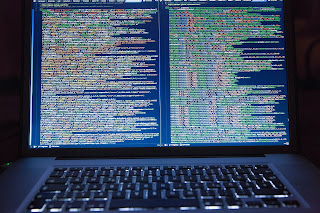 |
| Photo by rawpixel.com from Pexels |
Noted science-fiction writer Sir Arthur C. Clarke’s
observation that “Any sufficiently advanced technology is indistinguishable
from magic” is more relevant today than ever before.
A world where smartphones
walk and crawl with robotic limbs, humanoid robots conduct job interviews,
autonomous cars drive people home, drones make home-delivery possible, smart
assistants plan investments and make routine decisions for their users –
doesn’t seem fictional or far-fetched anymore.
Several of these technologies
are either already available or in development. Automation has made that
possible.
Automation is the application of technology to improve
business productivity, save time, and reduce costs. Technological advancements
in artificial intelligence (AI), machine learning (MI), robotic process
automation (RPA), and Internet of Things (IoT) have weaved automation so
seamlessly in our digital lifestyle that challenges that earlier seemed
unsurmountable can magically be addressed with automation.
Today, business
intelligence in applications has taken automation to a whole new level and it
is constantly evolving. Organizations like Amazon, Google, and other technology
bigwigs are constantly on the lookout for advanced AI platforms with highly
skilled digital assistants that will transform the way organizations behave and
connect with their clients.
The
benefits of automation
 |
| Photo by Markus Spiske temporausch.com from Pexels |
Automation is not a new concept and companies have resorted
to automate processes to improve efficiency in the past too, especially in
labour-intensive sectors. Economist J.M Keynes had predicted in the twentieth
century that automation would enable a shorter work week of less than 15 hours.
Today there is an increased demand for intelligent automation platforms across
industries not only to improve productivity and reduce costs but also to gain
deeper customer insights, understand consumer behaviour, and achieve customer
delight.
AI and ML are constantly evolving and equipping machines to learn
through experience, minus explicit programming.
Computers with artificial intelligence are being designed
to complete human tasks including speech recognition, decision-making, visual
perception etc. With IoT, the intent is that the things around us should be
able to understand, yield, and use the information generated by humans,
systems, or other things.
Automation improves business performance, cuts costs, and
eliminates human error. Robots have mastered the art of performing repetitive
tasks and revolutionized turnaround time in areas such as customer service, data-entry,
and IT support.
Now, with artificial intelligence performing mundane, routine
tasks, human minds can focus on more innovative and creative work.
On the
flip side
Automation has impacted every aspect of our lives –
political, social, economic, and personal. However, there are areas where AI
cannot be fully utilized such as jobs that involve expressing emotions or
showing empathy.
For example, the role played by doctors, care givers, social
service workers, counsellors etc. For careers in creativity too, automation has
its limitations – while there is knowledge and information, sensitivity is
missing.
Some experts argue that if not monitored, automation could
be dangerous to the human race.
While automated digital platforms may empower
users to switch their professions as frequently as they wish (be a cab driver
one day, a programmer the next day), working on diverse work areas might not be
empowering but rather enslaving in the long run. Besides, progress in
automation and artificial intelligence will not only eliminate the need for
people with routine, repetitive tasks but will also impact those with high
qualifications and non-routine jobs.
Going
forward
We are witnessing a technological revolution with
automation that is evolving and scaling new heights with every passing day.
Automation platforms are on the path to becoming more mature and proficient.
With real-estate agents turning to automation to attract buyers, researchers
from the University of Toronto claiming that AI may be able to predict if a
person has the Alzheimer’s disease five years in advance, and Saudi Arabia
becoming the first country to give citizenship to a robot, automation continues
to be the go-to technology across industries.

No comments:
Post a Comment